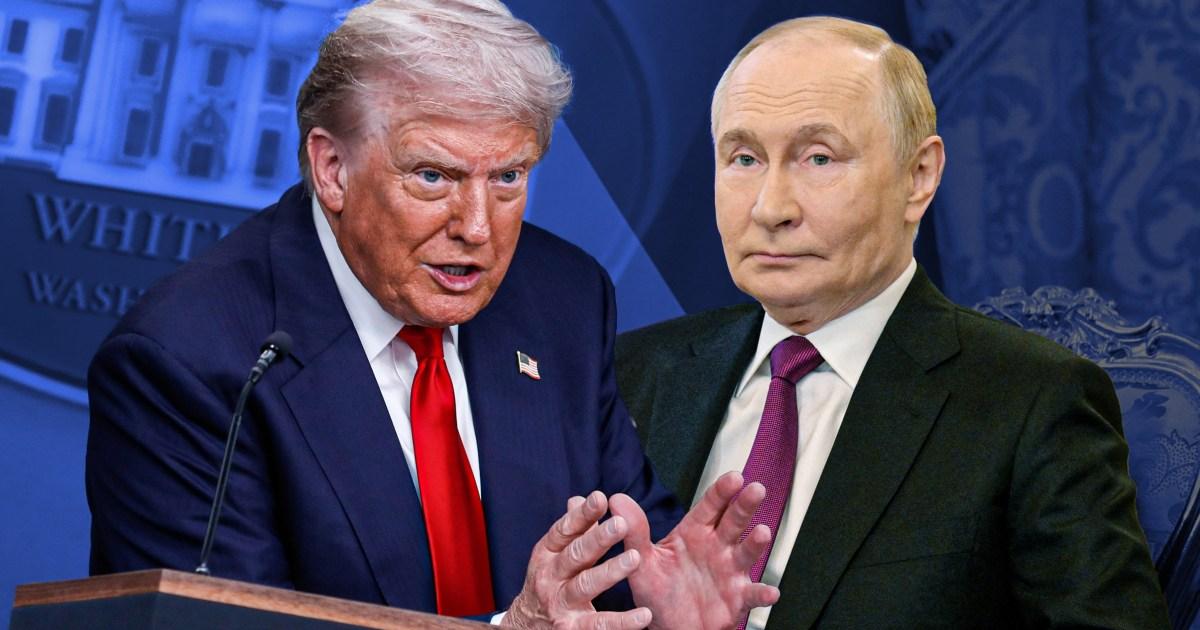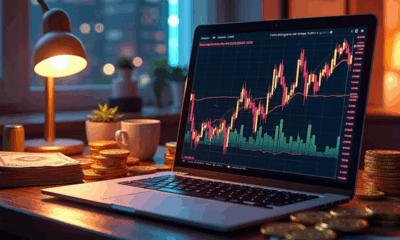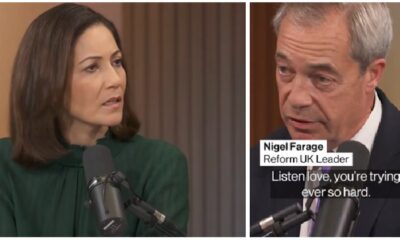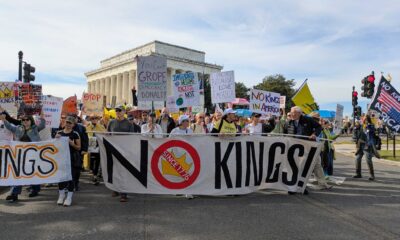World
Putin Faces Arrest Risk During Upcoming Meeting with Trump

Vladimir Putin, the Russian President, is currently subject to an international arrest warrant issued by the International Criminal Court (ICC) for alleged war crimes in Ukraine. This warrant, which has been in effect for over two years, seeks to bring the 72-year-old leader before a tribunal in The Hague for purportedly trafficking Ukrainian children from occupied territories into Russia. As the most prominent figure ever targeted by the ICC, Putin’s situation raises significant legal and diplomatic questions, particularly regarding his upcoming meeting with former U.S. President Donald Trump in Alaska.
Under the provisions of the Rome Statute, all member states of the ICC are obliged to detain individuals named in arrest warrants if they enter their territory. However, both Russia and the United States are not signatories to this treaty, meaning they are not legally bound to comply with such warrants. Consequently, the likelihood of Putin being arrested during or after his meeting with Trump on August 15, 2024, remains low.
While Putin’s expected visit to Alaska has sparked interest, it is essential to note that several countries, including Mongolia, have previously opted not to enforce the ICC’s arrest orders. During Putin’s visit to Mongolia in late 2024, the government cited its energy dependency on Russia and China as a reason for not complying with the arrest warrant. A government spokesperson stated that Mongolia has maintained a policy of neutrality in its diplomatic relations, which has complicated its ability to act on ICC obligations.
Countries where Putin could potentially be arrested include numerous ICC member states such as Argentina, Australia, Canada, and Spain. Should he travel to any of these nations, local authorities would be legally required to detain him under the ICC’s mandate.
As the political landscape unfolds, questions arise regarding the agenda for the Trump-Putin meeting. Trump has suggested that discussions may revolve around a potential land swap between Ukraine and Russia, aiming for a resolution that could benefit both nations. A spokesperson from the Kremlin has confirmed that the summit will proceed as planned, although Ukrainian President Volodymyr Zelensky has cautioned against any decisions made without Ukraine’s involvement, emphasizing that such actions would undermine peace efforts.
In recent weeks, U.S. relations with Russia have shown signs of strain, particularly following the imposition of tariffs on India for purchasing Russian oil. This backdrop adds complexity to the upcoming discussions, as both leaders seek to navigate their respective domestic and international pressures.
The ramifications of this meeting extend beyond the diplomatic sphere, highlighting the intricate web of international law and political maneuvering surrounding war crimes allegations. As Putin continues to assert military progress in Ukraine, the meeting with Trump presents an opportunity for him to portray himself as a negotiable counterpart, while also potentially gaining leverage on the battlefield.
The world watches closely as this high-stakes meeting approaches, recognizing the potential implications that could arise from the intersection of international law, politics, and military strategy.
-

 Entertainment2 months ago
Entertainment2 months agoAnn Ming Reflects on ITV’s ‘I Fought the Law’ Drama
-

 Entertainment3 months ago
Entertainment3 months agoKate Garraway Sells £2 Million Home Amid Financial Struggles
-

 Entertainment2 months ago
Entertainment2 months agoCoronation Street’s Carl Webster Faces Trouble with New Affairs
-

 Health1 month ago
Health1 month agoKatie Price Faces New Health Concerns After Cancer Symptoms Resurface
-

 Entertainment1 month ago
Entertainment1 month agoWhere is Tinder Swindler Simon Leviev? Latest Updates Revealed
-

 Entertainment3 months ago
Entertainment3 months agoKim Cattrall Posts Cryptic Message After HBO’s Sequel Cancellation
-

 Entertainment2 months ago
Entertainment2 months agoMasterChef Faces Turmoil as Tom Kerridge Withdraws from Hosting Role
-

 Entertainment3 months ago
Entertainment3 months agoSpeculation Surrounds Home and Away as Cast Departures Mount
-

 World1 month ago
World1 month agoCole Palmer’s Mysterious Message to Kobbie Mainoo Sparks Speculation
-

 Entertainment2 months ago
Entertainment2 months agoITV’s I Fought the Law: Unraveling the True Story Behind the Drama
-

 Entertainment1 month ago
Entertainment1 month agoCaz Crowned Winner of The Great British Sewing Bee, Overjoyed by Triumph
-

 Entertainment3 months ago
Entertainment3 months agoMarkiplier Addresses AI Controversy During Livestream Response




















